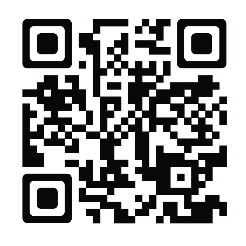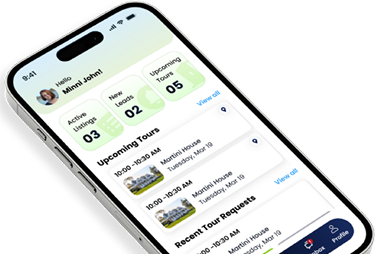1. Leverage Centralized Showing Systems
One of your first goals should be to ensure you do not waste time following up with potential home viewers. Fortunately, the answer to this lies in digital systems that can function without your input.
Since around 2020, we have seen a considerable increase in the adoption and reliance on digital products in several industries, including real estate. As of 2024, 67% of most major industries have accelerated how much they plan to rely on digital products to perform essential tasks, according to the University College of Estate Management. So, instead of using traditional and slow contact methods, source a robust app for real estate agents that incorporates scheduling processes, such as:
- Email communication
- Text or in-app notifications
- Real-time appointment requests and confirmations
- Automatically synced calendar data
If you give your team access to a real estate showing assistant, you hugely reduce the manual data entry they need to rely on while ensuring they can all focus on other areas of your business.
Instead, potential viewers can organize themselves by selecting the viewing they prefer and which you have already designated as available. If your team needs to follow up on a viewing before it occurs, they can then use the system to contact the viewer for more information.
Eliminate Redundant Follow-Ups
One of our most effective property management strategies is to utilize as much automation as possible. As such, use an app that can automate follow-up messaging, either by giving the viewer as much information as they can get up-front, via an effective self-help system, or by ensuring any CRM software can respond with common answers to user questions based on keywords.
It is also advantageous to utilize confirmations and triggers to consistently remind and check with the home viewer to ensure they understand the nature of the viewing. When they sign up for a home showing, the system should email them all the information they need, potentially asking them to click on a link to confirm the booking. Then, they should receive regular reminders as the time approaches to help prevent them from missing the appointment, as well as real-time updates if things need to suddenly change due to unavailability.
On top of this, tracking all communications between yourself and the viewer, allowing for clear visibility of multiple messages on different examples of real estate showing software, can help reduce unnecessary exchanges.
2. Adopt Automated Scheduling and Verification Tools
As well as the aforementioned showing booking, look for a real estate software company that provides ways to automate more efficient home investments.
For example, look for software that can create digital schedules and allocate available time slots for tours of each home without you needing to manually input the available times for your agents. While you may want to tweak them, try to use a system that also links to your real estate agents’ calendars, eliminating the human error of double-booking by automatically checking if agents are available to offer a tour and booking a time slot if not.
When prospective buyers self-book, the process should also be as simple as possible. With an intuitive interface and a streamlined user experience, they are more likely to use it to book a slot and reduce the amount of manual work you need to perform.
Making the Most of Data-Driven Scheduling Insights
As you continue to use these systems, you can start to mine them for valuable insights such as:
- Peak scheduling periods
- Conversion rates
- Appointment volumes
- Feedback and complaints
- Real estate agent availability
With all of these sources of truth, you can start to gather insights on your showing process that can support more effective portfolio optimization strategies, helping you develop real estate investment tactics that match your specific needs.
3. Adopt Smart Home Security and Management Solutions
Instead of always needing to be available 24/7 for potential showings, incorporate new technology into a trust-based property viewing system. Use smart home devices, including locks and cameras, to allow someone to manage the showing process and give viewers the freedom to move around without the direct involvement of real estate agents. For example:
- Install security cameras that agents can access with mobile devices
- Use motion sensors and alarms to detect and respond to unauthorized entries
- Maintain a comprehensive log of all access alongside automated records
- Offer automated tour information via an app or recordings
While this might appear impersonal, the truth is that 97% of smart device owners are at least somewhat satisfied with their devices, according to Exploding Topics. Trust is increasing in these devices with each subsequent leap in technology, and they are now in a place where people can use them in their daily lives to provide support such as this.
Along with a smart security system, you show how the property can incorporate cutting-edge security technology to ensure the safety of the occupants. In some cases, you can even leverage this to offer premium rates on homes by demonstrating the nature of the property’s security and built-in functionality in real-time.




